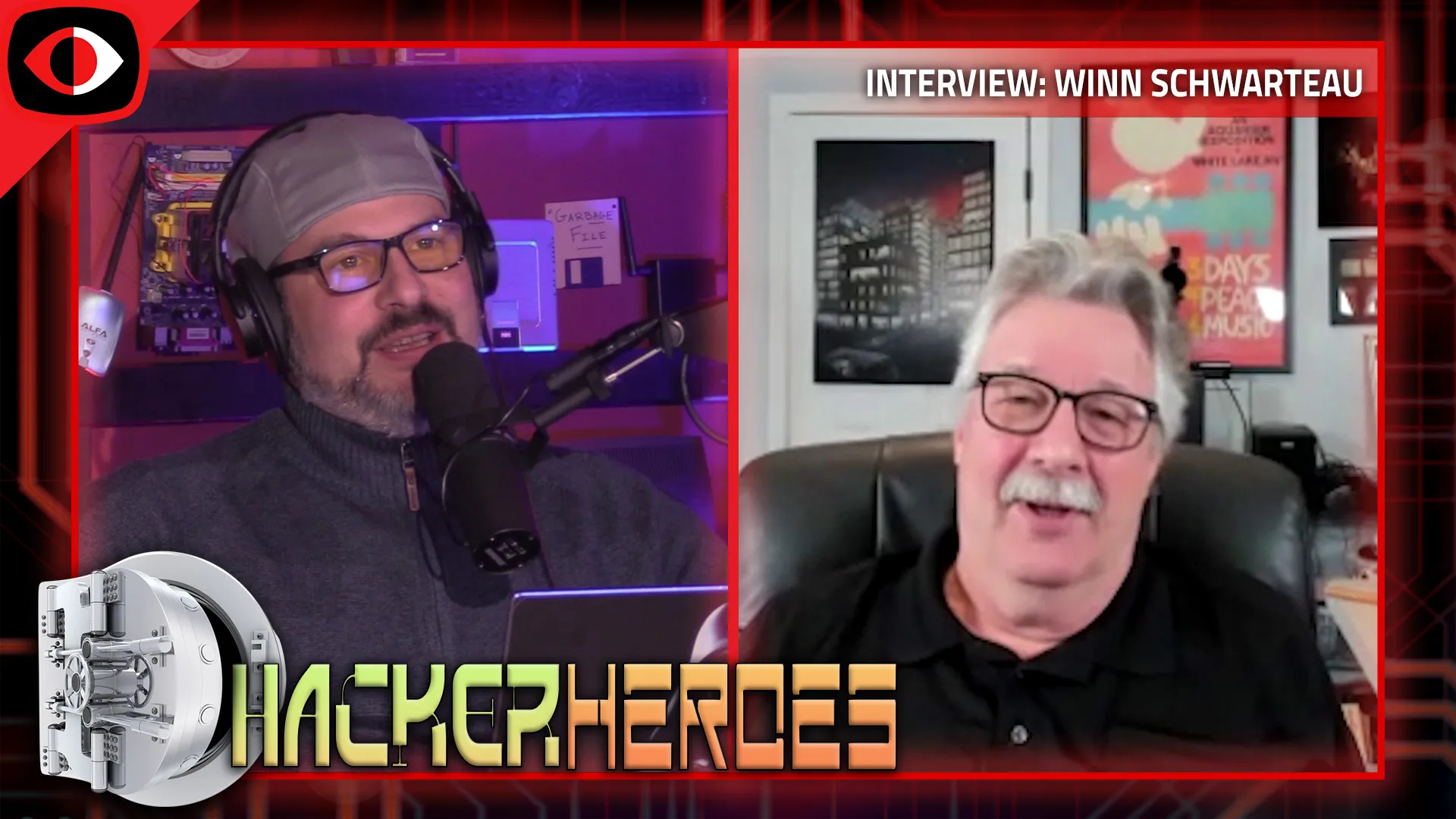Rip That Non-Value Add Out – BSW #221
Full Audio
View Show IndexSegments
1. Making the Case for Supply Chain Behavior Transparency – Ben Higgins, Ted Driggs – BSW #221
The Biden Cyber Executive Order includes a Software Bill of Materials that is a critical and necessary first measure for protecting the software supply chain. To defend against cyber attacks, such as the ones that impacted SolarWinds and the Colonial Pipeline, organizations also need transparency about the behaviors of the software in their supply chain––how, and with whom, they are engaging in and outside of their networks. Ben Higgins and Ted Driggs of ExtraHop join Security Weekly to explore how behavior transparency can give organizations an advantage by distinguishing between expected noise and indications of compromise.
Segment Resources: https://www.extrahop.com/behaviortransparency
This segment is sponsored by ExtraHop Networks.
Visit https://securityweekly.com/extrahop to learn more about them or visit https://www.extrahop.com/behaviourtransparency to learn more about behavior transparency!
Announcements
Don't forget to check out our library of on-demand webcasts & technical trainings at securityweekly.com/ondemand.
Security Weekly is ecstatic to announce that Security Weekly Unlocked will be held IN PERSON this December 5-8 at the Hilton Lake Buena Vista! Call for presentations & early registration for Security Weekly listeners is open now! Visit securityweekly.com/unlocked to submit your presentation & register for the early registration price before it expires!
Guests

Ted Driggs is the Head of Product at ExtraHop. He is passionate about building security solutions that give defenders the upper hand. Before ExtraHop, Ted was a PM for Windows at Microsoft. He is regular on tech and security podcasts, including Risky Business, Security Weekly, and DM Radio. In his free time, you can expect to find Ted on the side of a mountain––zipping through powder or hiking up rocks.

Ben Higgins is a Distinguished Software Engineer at ExtraHop with 15 years of experience in cybersecurity. He has extensive experience in systems engineering and protocol parsing, fingerprinting, and encryption. Ben is an experienced speaker, with recent appearances on Risky Business and Security Weekly. He holds a degree in Computer Science from the University of Washington.
Hosts
2. CIO Succession, Hidden Costs, 10 Leadership Habits, & 5 Key Ingredients – BSW #221
This week, In the Leadership and Communications section, What is the hidden cost of maintaining legacy systems?, 10 Leadership Habits of Highly Effective Leaders, 5 Key Ingredients to Finding Satisfaction and Fulfillment in Your Work, and more!
Announcements
Don't miss any of your favorite Security Weekly content! Visit https://securityweekly.com/subscribe to subscribe to any of our podcast feeds and have all new episodes downloaded right to your phone! You can also join our mailing list, Discord server, and follow us on social media & our streaming platforms!
Security Weekly is more than happy to announce that we will be at InfoSec World 2021 IN PERSON October 25th-27th, 2021! This year, our annual partnership with InfoSec World is extra special, as we are both business units under the CyberRisk Alliance brand! What does that mean for Security Weekly listeners & InfoSec World attendees? You will get to see and hear from many of the Security Weekly team at the event AND you will save 20% off on your world pass! Visit https://securityweekly.com/isw2021 to register using our discount code!
Hosts
- 1. CIO succession: Preparing for the next generation of tech chiefsGiven the relatively brief CIO tenure, training the next cadre of leaders is crucial for the continuity of technology strategy.
- 2. What is the hidden cost of maintaining legacy systems?One of the main factors when deciding whether to keep or replace legacy systems is determining the cost. Here we dive into five of the hidden costs CIOs should be aware of today, icluding: 1. Maintenance 2. Environmental costs 3. Staff costs 4. Technical debt 5. Opportunity costs
- 3. How technical debt piles upWith engineer turnover and a growing number of languages and frameworks, organizations can end up with a soaring IT backlog. The recipe for CIOs guiding their companies through growing IT complexity is to assess the backlog and focus on what improvements can most readily impact the business.
- 4. 10 Leadership Habits of Highly Effective LeadersYou can’t lead without mastering these 10 habits: 1- Define Your Vision 2- Communicate Clearly 3- Build Your Team 4- Deliver Results 5- Document Every Process 6 - Run Efficient Meetings 7 - Create a Sense of Urgency 8 - Delegate 9 - Create Healthy Culture 10- Solve Problems
- 5. How to build a strong crisis communications teamA crisis communications team works best when all members are fully aware of their responsibilities. Here are some tips on building a highly effective response team: 1. Assign the right roles 2. Delegate based on skill set 3. Action plans for smaller teams
- 6. 5 Key Ingredients to Finding Satisfaction and Fulfillment in Your WorkKnowing the “who”, “what”, “when”, “why”, and “how” of your work. #1 —[Mindset] Know Who You’re Working For #2 — [Direction] Know What You Want From Your Work #3 — [Balance] Know When to Work and When Not to Work #4— [Meaning] Know Why You Work #5 — [Discipline] Know How to Work







